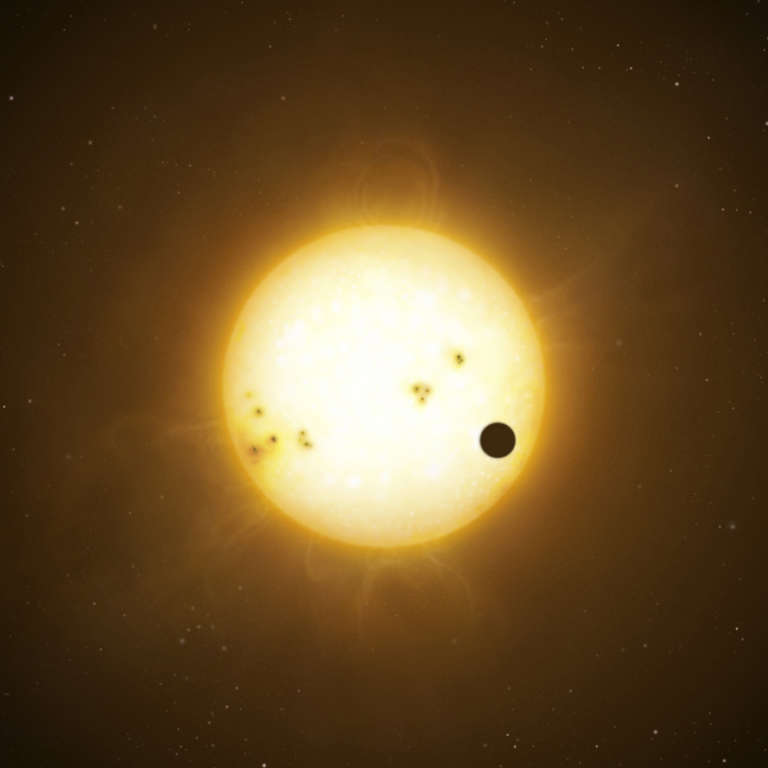All
All
Stories, updates, insights, and original analysis from The Planetary Society.
Citizen Science projects for Planetary Science: Get Involved! Do Science!
Citizen Science projects let volunteers easily contribute to active science programs. They're useful when there is so much data it overwhelms computing algorithms (if they exist) or the scientific research team attempting to process it.
Shuttle LIFE is go for launch with Endeavour!
The Planetary Society's Shuttle LIFE experiment is now go for launch on Endeavour's STS-134 mission. I came down to Florida for the loading of our tiny sample tubes into the CREST-1 (Commercial Reusable Experiments for Science & Technology) payload block.
FINDS: One Step Closer to Faraway Earths
Amir Alexander explains more about the FINDS Exo-Earths project and how it will help planet hunters detect distant Earths in the depths of space.
Phobos LIFE gets a ride on Endeavour as Shuttle LIFE!
The Planetary Society is contributing this thing called the Living Interplanetary Flight Experiment (LIFE) to Russia's Phobos sample return mission -- it's basically a sealed puck with dormant microbes inside that'll fly to Mars and back in the return capsule, and biologists will take a look to see what damage the little bugs suffered during their space journey.
Announcing the winners of the "Are We There Yet?" contest
I'm pleased to announce the winners of the Planetary Society's
Stardust update: Almost to Tempel 1
We're coming up on the final days of Stardust's approach to Tempel 1. The flyby takes place on February 15 at 04:56 UTC (February 14 at 20:56 PST).
Stardust Contest: "Are We There Yet?"
There's a new Planetary Society contest:
365 Days of Astronomy Podcast: Unmanned Space Exploration in 2011
Today the 365 Days of Astronomy podcast aired my contribution, Unmanned Space Exploration in 2011, about what to look forward to in solar system exploration this year.
Arsenic and Deep Space?
If you or I ingest arsenic, well...it doesn't go so well. If you are, on the other hand, a certain species of bacterium from Mono Lake, California, ingesting this seemingly toxic metal is simple enough.
Timeline for the Phobos Sample Return Mission (Phobos Grunt)
In mid-October, I attended the First Moscow Solar System Symposium. Its focus was mostly on Phobos science and plans for next year's launch of the Phobos Sample Return Mission (also known as Phobos-Grunt), on which The Planetary Society will be flying the Living Interplanetary Flight Experiment.
Crack the code for a message from Mars, redux
Waaaay back when Spirit and Opportunity landed on Mars in January 2004, the Planetary Society helped the public participate in the missions with a number of projects, including one where we printed
Update from the Ozma@50 Workshop
Frank Drake used the 85' radio telescope at Green Bank to conduct the first modern Search for Extraterrestrial Intelligence in 1960. Using a very simple receiver and no computers, he listened to each of two sunlike stars for 100 seconds. Call that unit 1 Ozma.
More from the Ozma@50 Workshop
Today's sessions at the Ozma@50 conference stretched the mind as these multidisciplinary gatherings usually do.
Report from SETI workshop marking 50 years since Project Ozma
Jon Lomberg repots from NRAO--the National Radio Astronomy Observatory-- in Greenbank, West Virginia on a SETI workshop marking the 50th anniversary of Project Ozma.
New Pulsar Discovery Shows Power of Citizen Scientists and Planetary Society Members
Planetary Society members have reason to celebrate today, with the on-line publication in Science of the discovery of a new pulsar by three citizen-scientists working with Einstein@home, a descendant of the SETI@home project.
Bill Takes a Job
Bill gives an introduction about his feelings on his new position here at The Planetary Society.
U.S. Citizens: Please write your elected representatives about restarting plutonium-238 production!
I'm hereby posting a request that was sent earlier today to members of the Division of Planetary Sciences (DPS) of the American Astronomical Society by its chair, Candy Hansen.
A moment in time
On Mars, at 15:00 local true solar time on May 2, a solitary rover gazed southward across her own dusty deck and snapped three photos, actually three sets of three photos, which were combined to make this view.
Send Your Name to Venus, now with a certificate!
I wrote a few weeks ago about a new Send Your Name to Venus campaign conducted by the Akatsuki mission. Now The Planetary Society has arranged with JAXA to collect names and messages on our website.


 Explore Worlds
Explore Worlds Find Life
Find Life Defend Earth
Defend Earth


 Sun
Sun Mercury
Mercury Venus
Venus Earth
Earth Mars
Mars Jupiter
Jupiter Saturn
Saturn Uranus
Uranus Neptune
Neptune Small Bodies
Small Bodies















